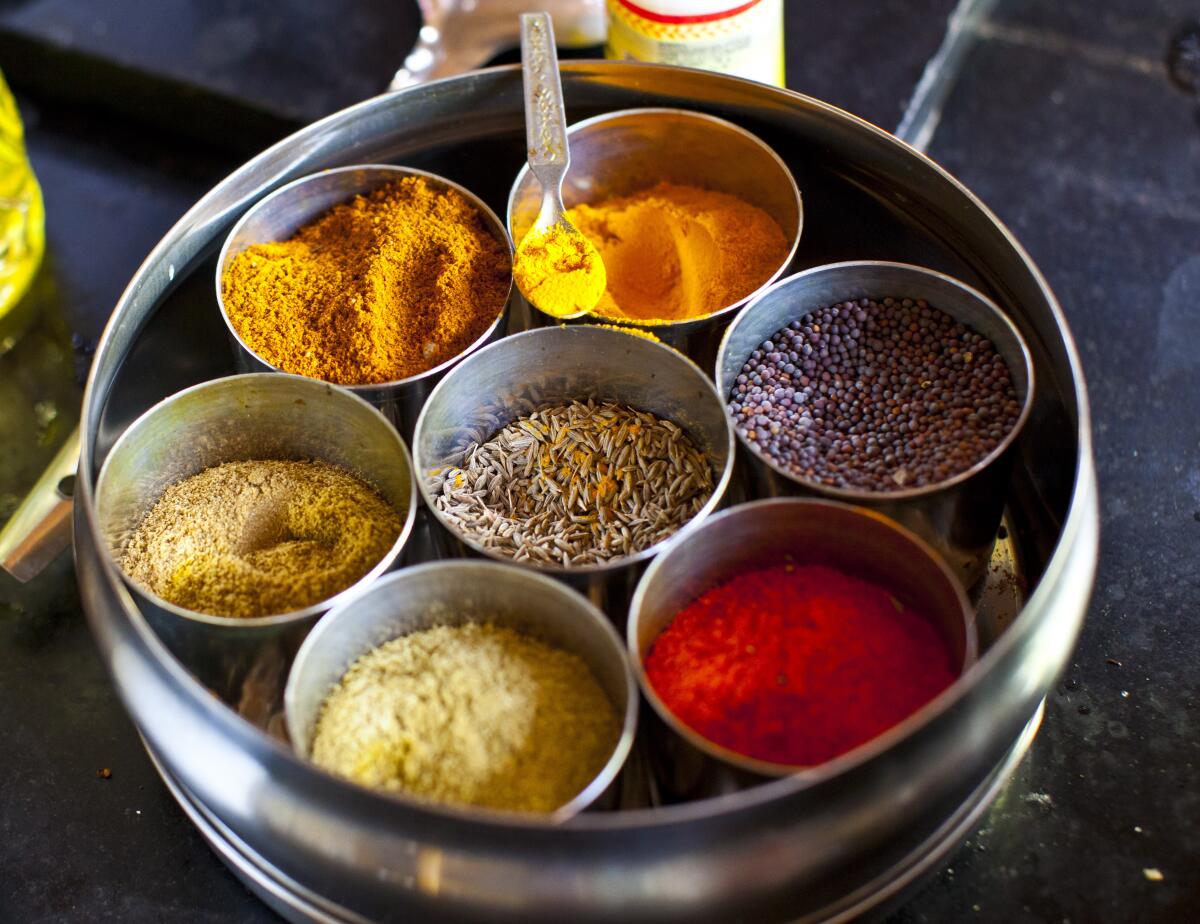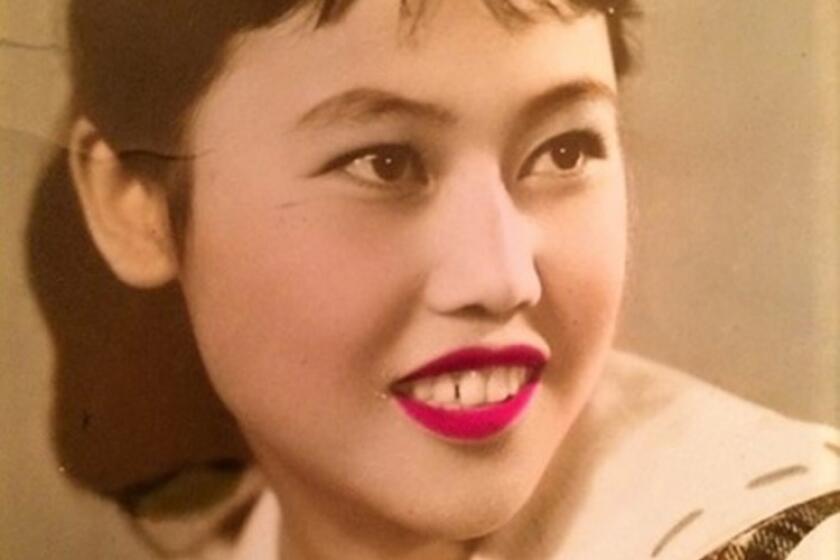Op-Ed: As an immigrant, I want to reclaim my name — and my identity

- Share via
Three decades ago, I arrived in the U.S., an immigrant on an F-1 student visa. Two suitcases filled with packets of cumin, turmeric, garam masala, Boroline antiseptic cream, and sandalwood. Didi, my elder sister, stuffed in T-shirts printed with snarky messages, counterfeit Levi’s — the standard graduate student uniform — plus a sari, just in case. Baba gave me a couple of traveler’s checks, saying, “Be careful.”
The state school was two hours from New York City. My PhD advisor was a youngish biochemistry professor, nerdy, funny, with grant money and ambition. On day one of orientation, I went to his office. I carried a big winter coat along, thinking it would snow any minute (in September) — an awkward Indian, with a heavy book bag, uncool glasses and hope.
“Hi, Professor R, my name is Madhushree Ghosh.”
“Huh?”
“Madhushree.” He rolled his eyes and laughed.
“It’s too long, too difficult to pronounce. I will call you Madhu.”
He held keys to the PhD kingdom. I didn’t even know I had a choice. I became Madhu.
For years, that’s what I was. Madhu. I didn’t even pronounce it as we would, back home. I even said Maa-doo, because Americans pronounced it that way. I made it easier for others even though it wasn’t my name.
An adoptee from South Korea grows up in Compton, then learns she had more in common with her birth mother than she ever imagined.
In India, parents spend months naming their child. In Hindu namkaran ceremonies, elders bless the child, bestowing the name. The parents spread rice on a dish and then, using a stick, write the name between the grains — to pray for the child’s prosperity and success. The priest says it aloud so the gods can hear. In Islamic ceremonies like the aqiqah, the family welcomes a child into the community at an elaborate celebration.
My mother spent months getting my name right. Madhushree in Sanskrit comes from madhu (life or honey) and shree (beauty). Which is beauty of life. My sister and cousin have names ending in shree describing their nature. We have all aligned with the meaning of our names, much like we did with our zodiac signs when we were teenagers, believing all Libras were indecisive and all Leos were bossy. We sisters embody the beauty of life, or the beauty of rhythm or the grace of royalty. Madhushree is my bhalo naam, or the official “good name.” I also had a daak naam, the nickname my family used for me. But for the world, I was Madhushree Ghosh. I was that till 1993, when I came to America.
Till I wasn’t.
With a shortened name, for nearly three decades I became Madhu, life, or honey. It isn’t me. It wasn’t me. But I didn’t want to inconvenience my PhD advisor who held the power to grant my degree. My business cards soon said Madhu Ghosh. I introduced myself so. I didn’t want to inconvenience any Americans. After all, I was the grateful immigrant. One didn’t have to be difficult, did one?
As immigrants, we don’t want to create trouble. Trouble is “foreign” names. Trouble is our “otherness” — we are responsible in how we erase ourselves.
In 1928, Vaishno Das Bagai, a naturalized American from India, died by suicide, an act of protest against America’s discriminatory citizenship laws. Stripped of his U.S. citizenship, his note in the San Francisco Examiner read: “Now what am I? What have I made of myself and my children? We cannot exercise our rights, we cannot leave this country.”
While the term Latinx is imperfect, the idea that it was invented by performative ‘woke’ whites erases the voices who forged it as a path to visibility.
It took me till I was editing my memoir to realize the significance of what I had erased. I had erased my culture with my name. Isn’t it something when you don’t even know you’ve minimized yourself to fit in the box you’re expected to be in?
During the pandemic, I posted about my name on social media. Some white friends who I’d known forever DM’d me — “You told us to call you Madhu, so how are we to know?”
True, true. But I heard no such comments coming from people of color.
I slip up constantly and introduce myself as Madhu. Like I don’t believe I deserve to hold my own name.
The trouble with difficult names is that we are trying to fit in. The trouble is, when it’s unfamiliar, how do you ask for the pronunciation without insulting someone? The trouble is, we are all either too cautious or too flippant. The trouble is, we didn’t even notice when we erased ourselves.
I hope we can claim ourselves back.
To start, my name is Madhushree Ghosh, daughter of Sudhin and Sila Ghosh. Immigrant.
Madhushree Ghosh is a writer and works in oncology diagnostics in San Diego. Her book “Khabaar: An Immigrant Journey of Food, Memory, and Family” will be released in April.
More to Read
A cure for the common opinion
Get thought-provoking perspectives with our weekly newsletter.
You may occasionally receive promotional content from the Los Angeles Times.












